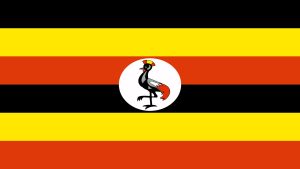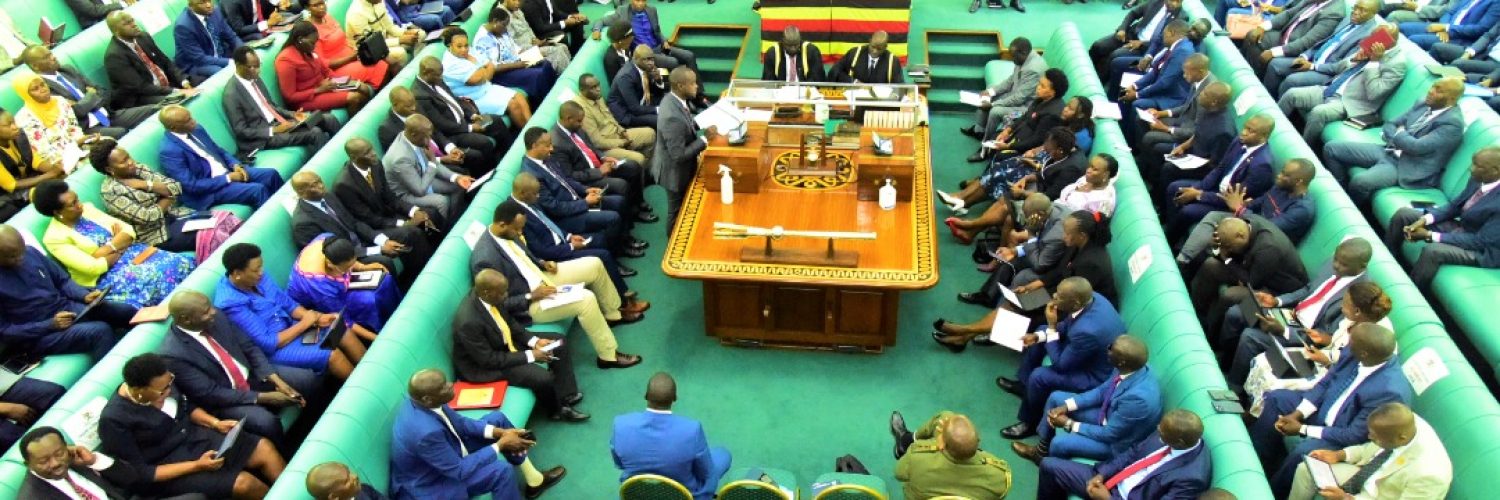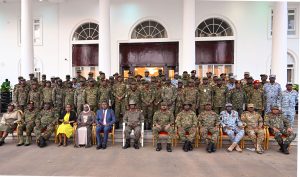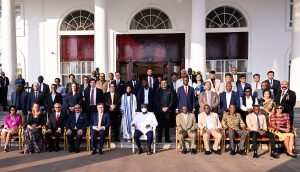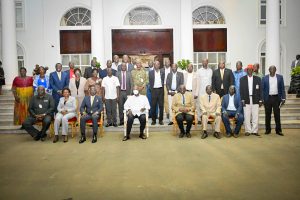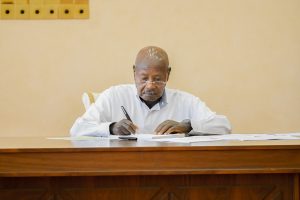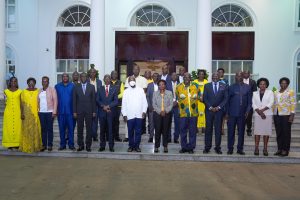The Parliament of Uganda derives its mandate and functions from the 1995 Constitution, the Laws of Uganda and its own Rules of Procedure.
The Constitution contains articles which provide for the establishment, composition and functions of the Parliament of Uganda and empowers Parliament “to make laws on any matter for the peace, order, development and good governance of Uganda”, and “to protect the Constitution and promote democratic governance in Uganda”.
The functions of the Parliament of Uganda are:
1. To pass laws for the good governance of Uganda.
2. To provide, by giving legislative sanctions taxation and acquisition of loans, the means of carrying out the work of Government.
3. To scrutinise Government policy and administration through the following:
a. pre-legislative scrutiny of bills referred to the Parliamentary committees by Parliament
b. scrutinising of the various objects of expenditure and the sums to be spent on each
c. assuring transparency and accountability in the application of public funds
d. monitoring the implementation of Government programmes and projects
4. To debate matters of topical interest usually highlighted in the President’s State of the Nation address.
5. To vet the appointment of persons nominated by the Presidentunder the Constitution or any other enactment.
Composition
under article 78(1) of the 1995 Constitution prescribes the composition of Parliament as follows:
Parliament shall consist of :
- Members directly elected to represent constituencies;
- One woman representative for every district;
- Such numbers of representatives of the army, youth, workers, persons with disabilities and other groups as Parliament may determine; and
- The Vice-President and Ministers who, if not already elected Members of Parliament, shall be ex-officio members without the right to vote on any issue requiring a vote in Parliament.
Parliament is presided over by the Speaker, and in his/her absence, by the Deputy Speaker both of whom are elected by Members of Parliament from their number.
